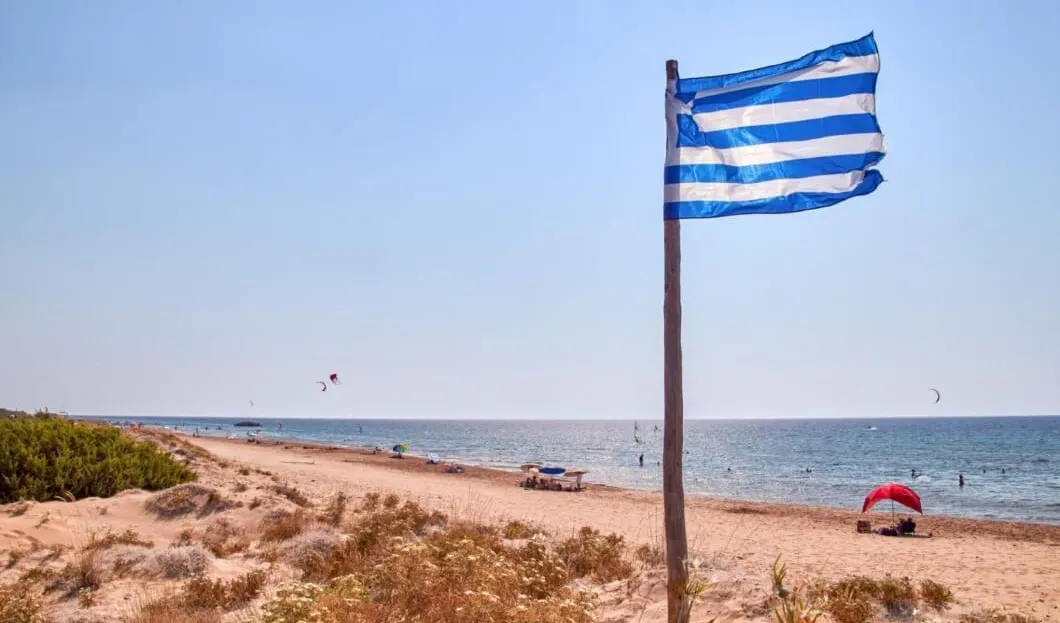
Global warming will change holidays across Mediterranean destinations. Nearly 300 beaches could be flooded in the next few decades.
Little Venice, a charming location on the Greek island of Mykonos, is considered one of the most romantic places there. With its picturesque whitewashed houses and colorful shutters in the sea, visitors can enjoy breathtaking sunset views from waterfront bars and cafés. However, this idyllic place may not exist in a few decades due to rising sea levels. Greece's coastline and beaches are in danger as a result of the sea's gradual rise eroding the houses' foundations and walls in Little Venice.
Greece has the longest coastline of all Mediterranean countries, spanning almost 15,000 kilometers, including over 3,000 islands. The country's most famous beaches, such as Navagio in Zakynthos, Elafonisi, Balos, and Vai in Crete, Myrtos in Kefalonia, and Agios Prokopios in Naxos, are among those at risk due to rising sea levels caused by global warming. Given Greece's vast coastline, it is particularly vulnerable to the effects of climate change, and the situation concerns researchers.
293 Greek beaches are at Risk
Niki Evelpidou, a geography and climate sciences professor at the University of Athens, has identified 293 Greek beaches at risk of disappearing in the coming years due to climate change. The scientist explained that the so-called tomboli beaches are particularly endangered. Tomboli is strips of dunes or sandbanks that link an island to the mainland or two islands to each other. These picturesque beaches are formed by sand deposits at estuaries or coastal currents.
Some of Greece's most famous tomboli beaches include Balos in Crete, Prasonisi in Rhodes, Oikonomou in Paros, Kolona in Kythnos, and Panagia in Naxos. Unfortunately, these shallow beaches are doomed to disappear due to rising sea levels.
Mediterranean vacation: why sea levels are rising
The release of greenhouse gases by humans is causing the Earth's climate to warm, leading to the thawing of ice masses at the poles and mountain glaciers. As a result, sea levels have risen by 20 centimeters since the 19th century. The annual increase has accelerated from 1.4 millimeters in the early 19th century to 3.7 millimeters in the last decade, indicating a potential rise of 28 centimeters by 2100 if the trend continues. Moreover, there are signs that the increase is accelerating, making it a significant concern for the future.
Greece will be hit particularly hard
Costas Synolakis, a professor of environmental engineering at the University of Southern California and chair of Greece's National Science Council on Climate Change, warns that recent projections show sea levels in the Mediterranean could rise by approximately one meter by 2100. Greece is already experiencing significant problems with coastal erosion due to a lack of planning for coastal facilities and human intervention. According to the geoscientist, beaches with fine sand and gentle slopes preferred by holidaymakers are particularly vulnerable.

Synolakis recommends environmentally friendly beach reclamation instead of harsh interventions such as building groynes or breakwaters to preserve these beaches. He warns that such interventions may even accelerate erosion.
Mediterranean beach vacation may soon be over
The management of many beaches, the construction of beach restaurants and bars, the creation of paths, and the destruction of watercourses worsen the problem of beach erosion by disturbing the natural hinterland of the beaches with dunes, vegetation, and deposits. Although measures such as reclamation can delay the erosion of beaches, ultimately, they cannot prevent it.
Moreover, the traditional Mediterranean beach vacation model may likely be coming to an end. According to a recent study by the Australian travel company Intrepid Travel, in collaboration with the think tank Foresight Laboratory, holidaymakers are expected to turn towards cooler destinations in Northern Europe in the future. Climate change will make destinations like Greece and Mallorca too hot during the summer.










